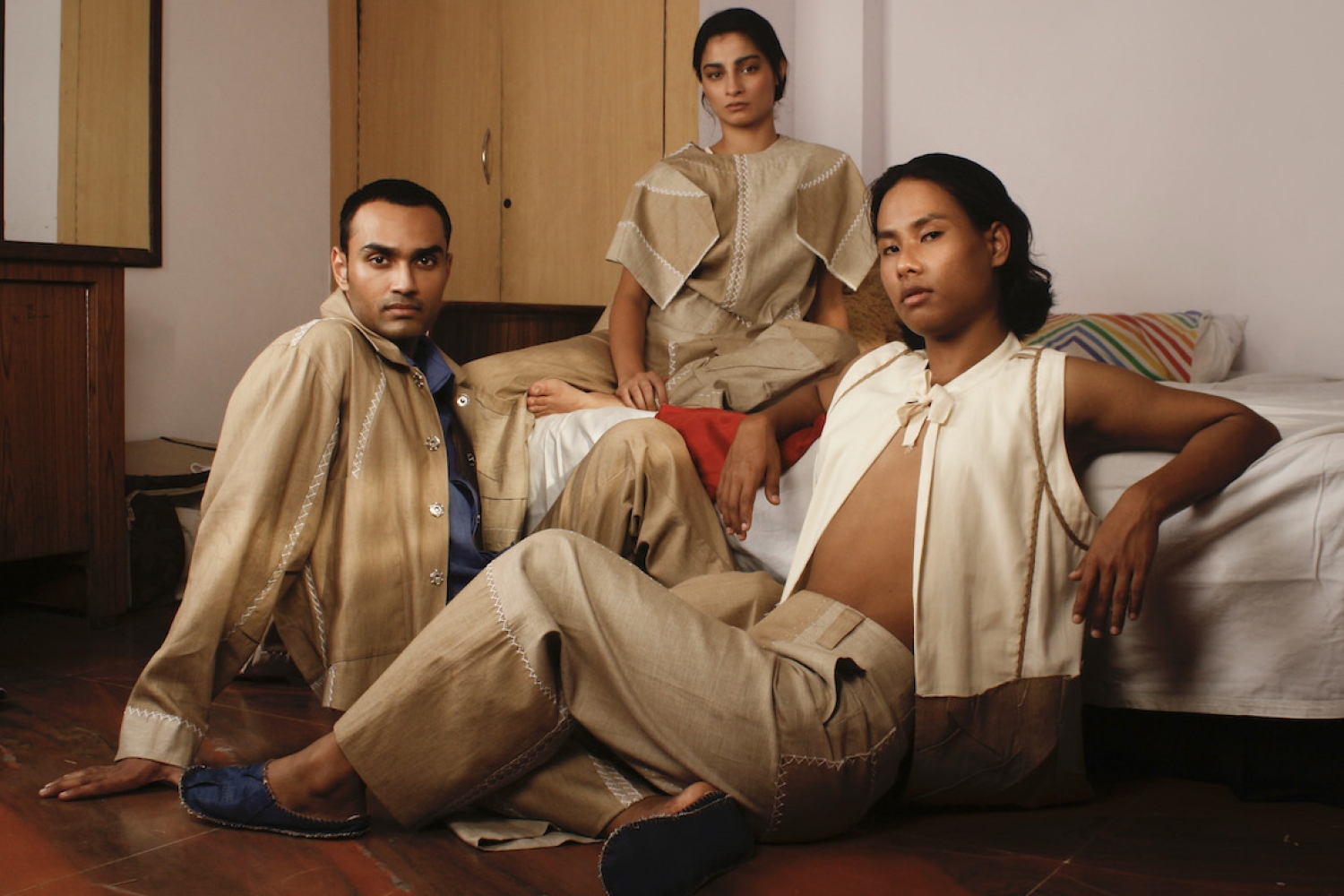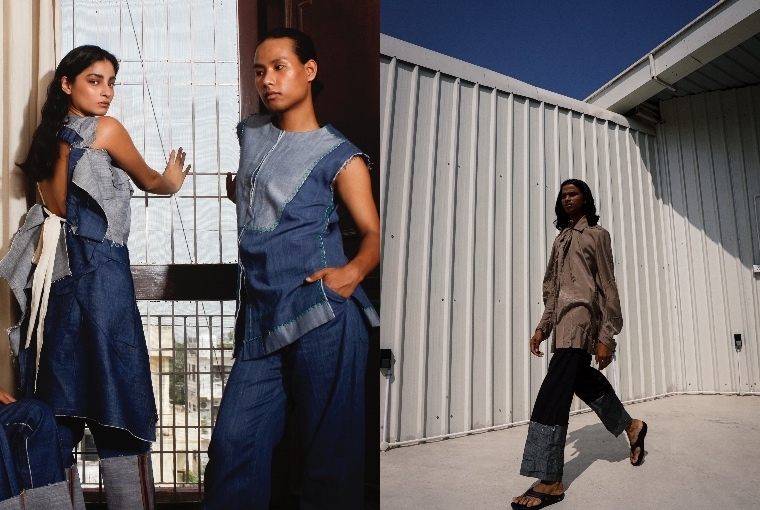

Founder of the label LEH Studios, Himi graduated with a degree in design from NIFT, Shillong. However, it was much before college that he found himself acquainted with the world of fashion through FashionTV and lifestyle magazines, at the mere age of seven. Ever since, his relationship with the field has evolved as he engaged with it more. His sensibility for the label stems from his own understanding of what it means to be home. LEH Studios’ foundation is built strongly on the belief that now is as good a time as any to work fervently to preserve and memorialise indigenous artisanal practices. He adds, "At LEH we try to enter this kind of mysticism where you experience the ecstasy of unity in diversity.”
When it comes to the label’s design language, Himi’s thought process is rather interesting. He believes in transforming emotions into something tangible. Working with the mantra of Think Global, Act Local, LEH Studio is the medium used to bring alive the designer’s childhood memories, personal experiences and explore his personhood. “I hope to find a balance within our culture and Western influences to create products that speak of my reality, while placed in constructed settings. There is a milieu of memories and disciplines, like early memories of experimenting with the sentimentality of hand-me-downs and their generational alteration, that form the spine of LEH,” he asserts. The label finds itself immensely drawn towards the narrative building that surrounds Indian fashion in terms of who tells it, who nourishes it and the very consequences of telling it.

As a newer label on the block, their shift to being a zero-waste label has been gradual, yet something the team has been excited about due to the positive response received from the consumers. Their pan-Indian sustainable narrative includes making use of the left-over scrap fabric and employing textiles like hand woven double cloth merino wool from Kullu; Terracotta Silk found from fabric vendors; indigenous cotton, khadi, denim; linen from West Bengal and 100% silk from Chanderi village.
This article is an all exclusive from our October EZ. To read more such articles follow the link here.
Text Unnati Saini
Date 04-11-2021